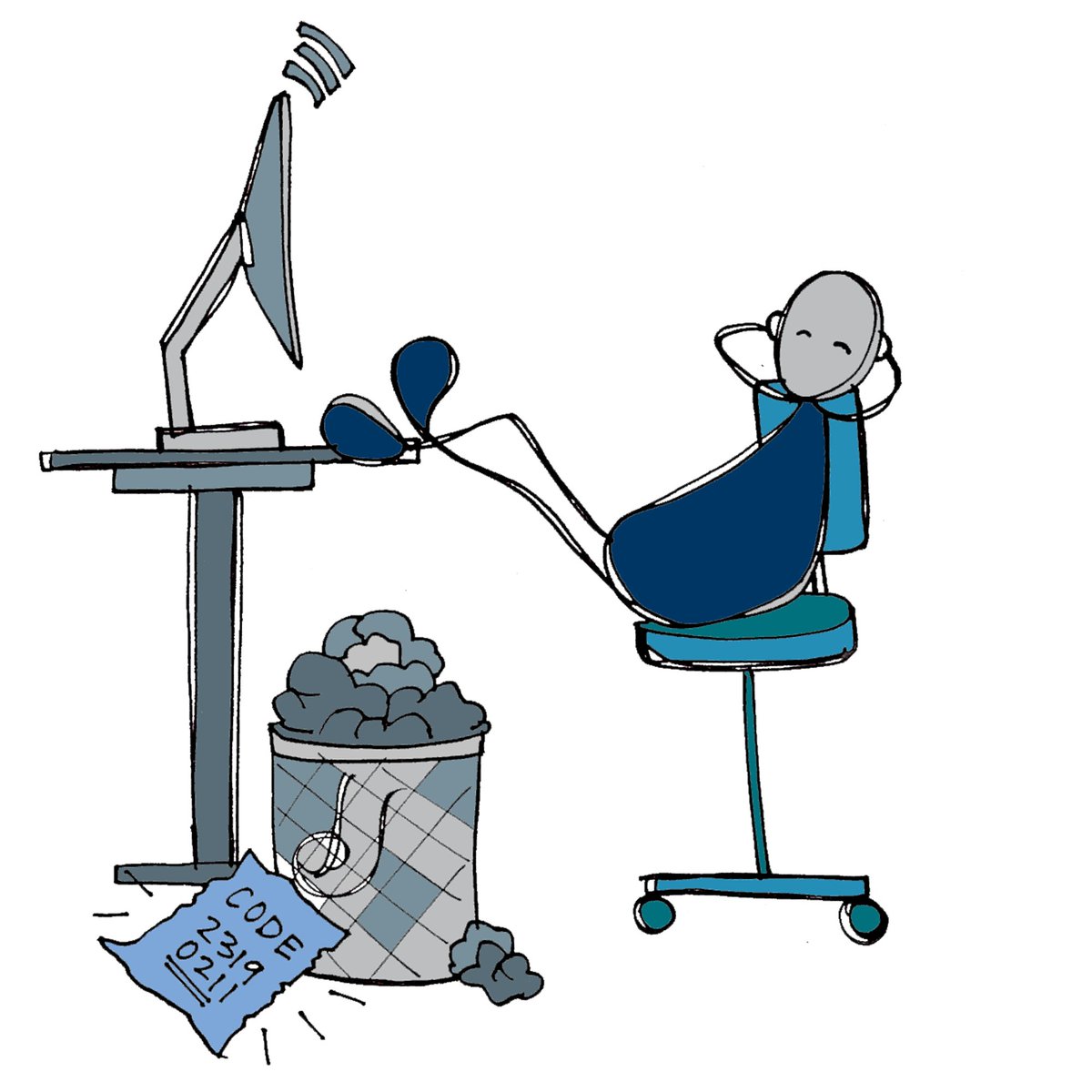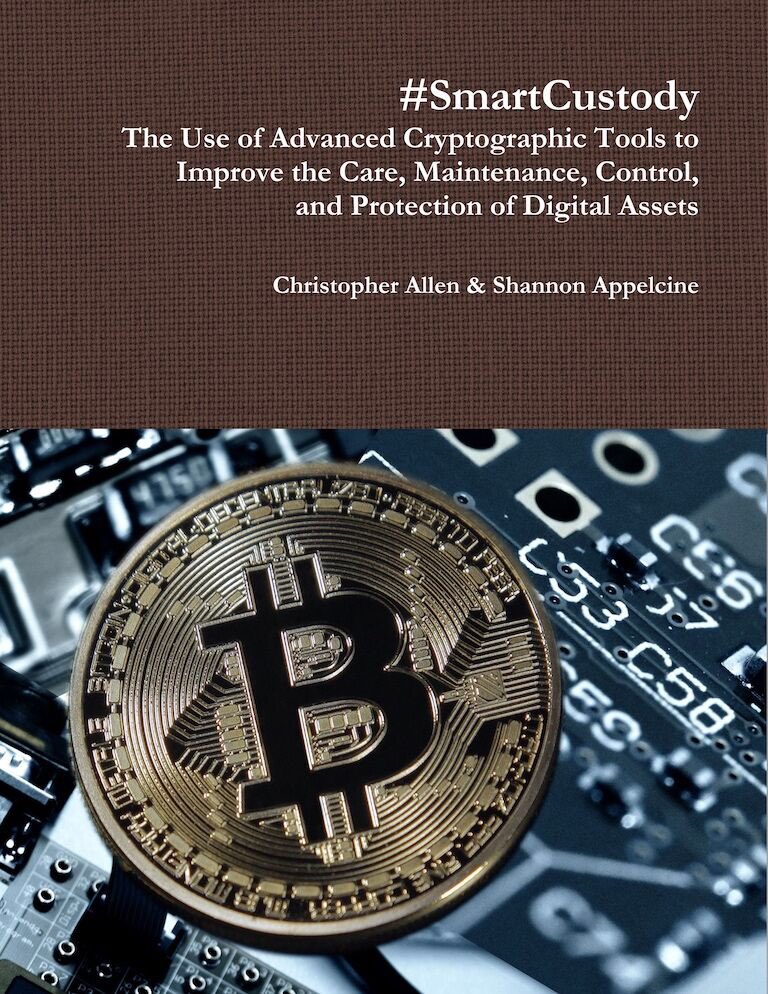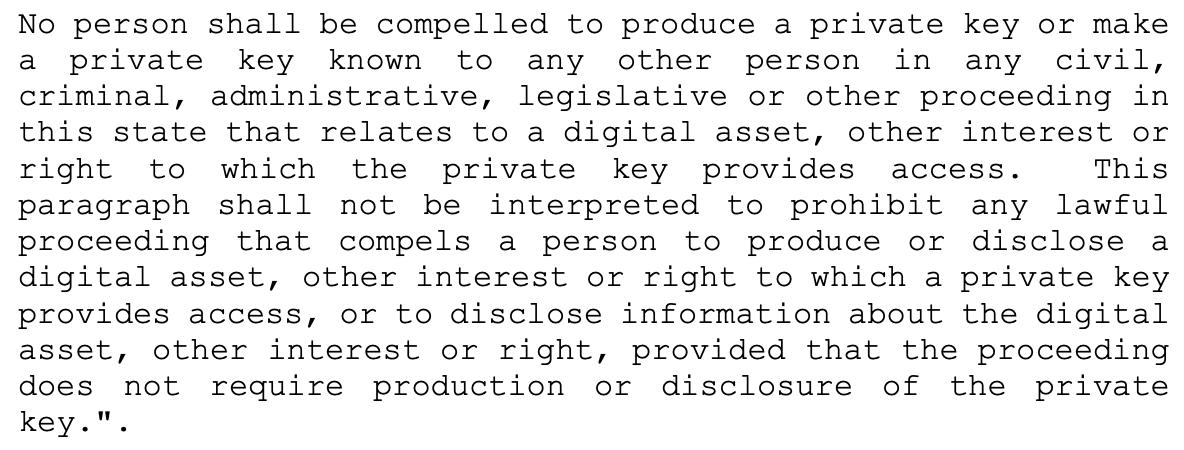
Blockchain & Decentralized Identity Architect—Internet Cryptography Pioneer—Co-author TLS & DID Standards—Collaborative Tools & Patterns
How to get URL link on X (Twitter) App



https://twitter.com/ChristopherA/status/1659061319004454913The first obstacle to multisig is that our experience is that they are too complex for normal usage. We know that even professionals using one of our well-tested secure scenarios find the hour it takes is too long. [2/13] github.com/BlockchainComm…

https://twitter.com/ledger_support/status/1658824425192521728The Gordian Principles from @BlockchainComns suggest that digital assets should be held in a way that’s independent, private, resilient, and open. Ledger Recover increases resilience, but that’s it. [2/12] github.com/BlockchainComm…
https://twitter.com/ledger/status/1658518313083731974Obviously, Shamir’s Secret Sharing has a long history and is widely used, but it also has real drawbacks. As we’ve written at @BlockchainComns, one of the biggest dangers comes in reconstruction. [2/11] github.com/BlockchainComm…
https://twitter.com/ledger/status/1658513310541545491As it turns out (as all hardware wallet designers already know), all it requires is a signed firmware update, and seeds can go wherever they want. Why?… [2/11]


 Why? Because loss of a seed or private key is the easiest way to lose your Bitcoin or other cryptocurrency. SSKR safely backs up your seed by breaking it into shares which are only useful if combined back together. For details see our overview doc: [2/15] github.com/BlockchainComm…
Why? Because loss of a seed or private key is the easiest way to lose your Bitcoin or other cryptocurrency. SSKR safely backs up your seed by breaking it into shares which are only useful if combined back together. For details see our overview doc: [2/15] github.com/BlockchainComm…

https://twitter.com/CoinDesk/status/1386709198579322883?s=20

https://twitter.com/ChristopherA/status/1267560481855639553You could choose to store your keys in hot wallets, which are directly connected to the internet, or in cold storage, which takes them offline. Each has its own advantages and limitations. [2/10]




 I had founded Skotos in 1999 with a goal of creating "multiplayer interactive fiction on the Internet". We wanted to make games that were more social, more dynamic, more interactive, more “real”, and in particular more story-focused than anything that had been seen before. [2/15]
I had founded Skotos in 1999 with a goal of creating "multiplayer interactive fiction on the Internet". We wanted to make games that were more social, more dynamic, more interactive, more “real”, and in particular more story-focused than anything that had been seen before. [2/15]

 CONVENIENCE is an error that arises from your decision to ignore your normal security procedures. Yet that decision might be for entirely good and pragmatic reasons. (2/8)
CONVENIENCE is an error that arises from your decision to ignore your normal security procedures. Yet that decision might be for entirely good and pragmatic reasons. (2/8)

 This is the third adversary in my #SmartCustody book about protecting your cryptocurrency and other digital assets. And the motivations certainly explain the ways that you could lose your private keys. A house fire, a flood, a tornado, a war. (2/9)
This is the third adversary in my #SmartCustody book about protecting your cryptocurrency and other digital assets. And the motivations certainly explain the ways that you could lose your private keys. A house fire, a flood, a tornado, a war. (2/9)

 In the 1st edition of #SmartCustody we detail best practices & default storage scenarios, offer an exercise for you to learn how to model digital asset flows, create a risk model, do an adversarial analysis, and use these tools to modify your personal storage scenario. (2/14)
In the 1st edition of #SmartCustody we detail best practices & default storage scenarios, offer an exercise for you to learn how to model digital asset flows, create a risk model, do an adversarial analysis, and use these tools to modify your personal storage scenario. (2/14)

 Your digital assets are more vulnerable you might think. They could be stolen by hackers, extorted by the mob, expropriated by the government, or lost by you!
Your digital assets are more vulnerable you might think. They could be stolen by hackers, extorted by the mob, expropriated by the government, or lost by you!

 There is some prior discussion on this topic starting with my original thread on twitter:
There is some prior discussion on this topic starting with my original thread on twitter: https://twitter.com/ChristopherA/status/1121883628701544449